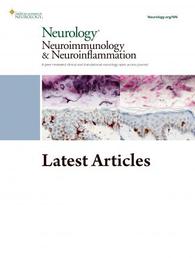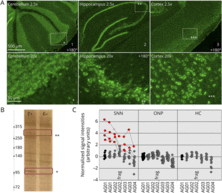Argonaute Autoantibodies as Biomarkers...
The discovery of autoantibodies (Abs) against neuroglial antigens has revolutionized the diagnosis and understanding of autoimmune neurologic diseases and has led to the clinical description of different subtypes of autoimmune encephalitis (AE), paraneoplastic neurologic syndromes (PNS), and inflammatory peripheral neuropathies. Some neuronal Abs can play a direct role in the pathophysiology, mainly when they are directed against surface antigens such as NMDA receptor, some Abs are only indicative of an underlying cancer and can be useful to guide tumor screening in PNS, whereas others are biomarkers of autoimmunity, such as antibodies against fibroblast growth factor receptor 3 in sensory neuronopathy.
In the present study, 2 different methods (immunoprecipitation coupled to mass spectrometry [MS]-based proteomics and protein microarrays) were used in parallel with the aim to identify novel Ab targets, leading to the discovery of antibodies against the Argonaute protein family (AGO-Abs), which have been already reported in systemic autoimmune disorders.




